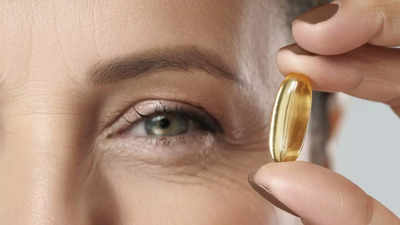
Just like our bodies and minds, our eyes also require periodic rejuvenation and care. Symptoms such as soreness, itching, and a burning sensation can suggest issues with eye health, which can negatively impact our mood and hamper productivity.
In today’s world, our ocular health is influenced by various factors including pollution, screen strain, and UV exposure. Our delicate eyes not only need regular breaks from screens but also a nutritious diet.
A nutrition plan high in antioxidants such as vitamins A, B1, C, and additional eye-benefiting nutrients like zinc and omega-3 fatty acids can help alleviate inflammation and safeguard the eyes from common issues like dryness, redness, and reduced vision.
Harvard Health highlights the importance of antioxidants, which help eliminate potentially harmful oxidants from the body, playing a vital role in maintaining eye wellness. Oxidation contributes to the aging of cells, and antioxidants work to decelerate this process. Vitamins A, C, and E stand out as key players in enhancing eye health.
Vitamin A
Vitamin A is crucial for preserving vision and preventing serious conditions associated with its deficiency. This nutrient is needed to generate the pigments that enable us to perceive the full spectrum of light. Insufficient vitamin A can lead to night blindness and dry eyes, while also compromising the cornea and hindering the formation of rhodopsin, a vital protein for nocturnal vision. Over time, a deficiency in this nutrient can result in severe vision problems.
Sources: Leafy greens, oranges, carrots, sweet potatoes, pumpkin, eggs, and cantaloupe.
Zinc
Zinc plays a critical role alongside Vitamin A by transporting it from the liver to the retina, thereby aiding in the production of melanin, which safeguards the eyes. As reported by WebMD, zinc supplementation, especially when combined with antioxidant vitamins, may slow the progression of age-related macular degeneration (AMD), an eyesight change commonly associated with aging. Since zinc can inhibit copper absorption, it’s typically balanced with copper supplements.
Sources:Oysters, lobsters, yogurt, zinc-fortified cereals, baked beans, and cashews.
Vitamin C
Vitamin C is fundamental for eye health as it lowers oxidative stress in eye cells and supports the integrity of blood vessels. Research published in the journal Nutrients indicates that Vitamin C may help reduce the risk of cataract formation. This antioxidant not only prevents oxidative damage but also enhances overall eye wellness. As we age, the levels of Vitamin C in the lens drop, and decreased levels correlate with more severe cataract development. This vital nutrient also aids in tear production, assisting in preventing dry eye syndrome.
Sources:Citrus fruits, berries, kiwi, bell peppers, tomatoes, leafy greens, and broccoli.
Omega-3 Fatty Acids
Incorporating Omega-3 fatty acids into your diet can protect your eyes from conditions such as glaucoma, which can lead to blindness. These essential fats combat dry eye syndrome by promoting tear production and are abundant in retinal cells, particularly DHA, which is crucial for optimal visual development and retinal health. Omega-3 fatty acids also have anti-inflammatory properties and promote healing of the cornea and retina.
Sources: Fatty fish like salmon, mackerel, sardines, flaxseeds, chia seeds, walnuts, and algae-based supplements.
Vitamin B1 (Thiamine)
Vitamin B1 is vital for reducing eye inflammation and can help alleviate symptoms of dry eye syndrome. Known as the “anti-stress” vitamin, it supports nerve function which is essential for eye health. Supplementing with Vitamin B1 may also help decrease the chances of cataracts forming.
Sources: Whole grains, legumes, nuts, seeds, pork, and fortified cereals.










